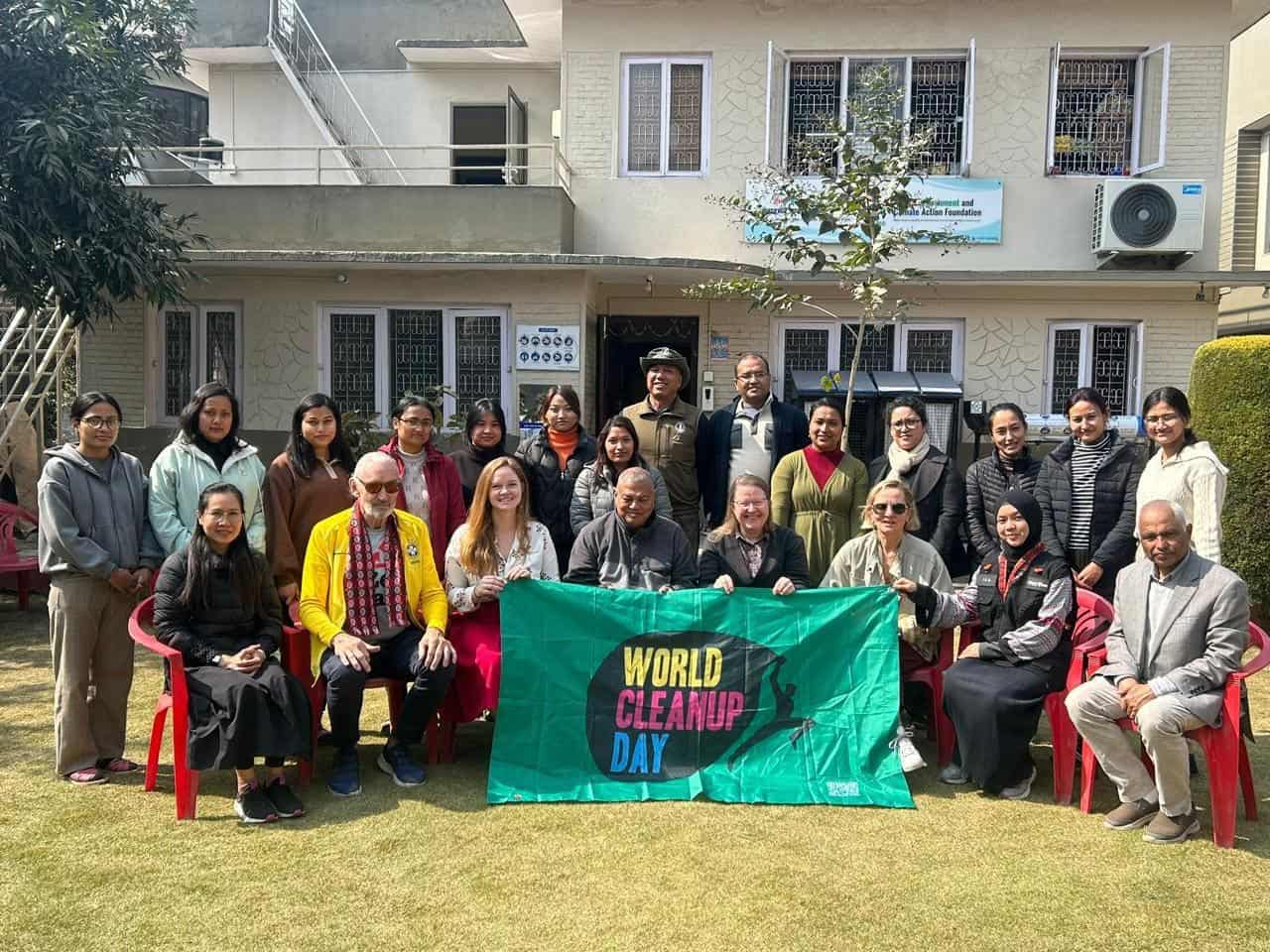KATHMANDU, NEPAL — Dompet Dhuafa through the Disaster Management Center (DMC) and Dompet Dhuafa Volunteer (DDV) attended the Nepal Zero Waste Meet 2024 event which took place for three days on Saturday (17/2/2024) to Monday (19/2/2024) in Kathmandu, Nepal.
The event that carries the main theme “Zero Waste Solution for Plastic Pollution” was promoted by the Health Environment and Climate Action Foundation (HECAF 360) and Tear Fund-Nepal, by cooperating with the Buddhist Tzu Chi Foundation, Zero Waste USA, and Zero Waste International Alliance as event collaborators.
On Saturday (17/2), a pre-event activity that included zero waste certification training took place at the office of the non-profit organization HECAF 360.

Read also: Voluntrip Waste Summit Papua: Clean Tourism from Waste
There were various materials explained in the session. Such as the concept of zero waste, the benefits of zero waste, zero waste institutions and businesses, zero waste communities, and how to be part of the Zero Waste Alliance movement. The materials were presented by representatives from Zero Waste USA and Zero Waste International Alliance.
The Nepal Zero Waste Meet 2024 activity began with the official opening by Dr. Birendra Prasad Mahato as the Minister of Forestry and Environment of Nepal. Furthermore, the activity was filled with material exposure related to zero waste, on Sunday (18/2).
The materials included the global zero waste scenario, strategies to reduce emissions through zero waste, policies and regulations regarding zero waste in a global context, and the use of alternative tableware.
The highlight of this event was the best practices around the world session, where zero waste practitioners presented their programs.

Read also: Maggot Cultivation from Zakat, Alternative Animal Feed to Organic Waste Solution
In this session, Ika Saragih as a representative of DMC Dompet Dhuafa and DDV had the opportunity to share her story about the Waste Summit 2023 Voluntrip Program which was successfully held in 11 provinces in Indonesia.
According to Ika, the material and experiences of zero waste practitioners who attended the meeting provided a new picture for DMC and Dompet Dhuafa programs as a whole related to waste management and the environment.
“I got a new, more detailed picture of the principles of zero waste, such as designing a movement with a zero waste approach, involving the community, then getting an overview of how the zero waste movement is in several regions in the world, and seeing how regulations regarding the management of disposable plastic waste in Nepal in particular,” explained Ika Saragih as a representative of DMC Dompet Dhuafa.
“This is quite in line with DMC programs related to the environment,” concluded Ika.

Read also: Dompet Dhuafa’s Collaborative Efforts for Waste Management in Ternate
The series of events then visited two schools around Kathmandu City that have implemented zero waste practices and a waste management center for former drug users.
Zero waste is an important topic in waste management, especially in developing countries.
“Solid waste such as plastic is often managed in the wrong way. It is collected and then burned in the open. This is a serious problem. And of all the waste, no more than 2 percent can be reused. This is a big picture for zero waste management,” said Sanjeev Kumar Pandey, one of HECAF 360’s Board of Directors.
The increasing waste problem in developing countries is driven by several factors, such as population growth, lifestyle changes, urbanization, and the widespread use of disposable goods. This has led to a significant increase in solid waste, especially in urban areas.
Solid waste management in cities faces the challenge of dealing with different types of waste, including household, industrial, commercial, institutional and healthcare waste, which is often disposed of improperly, contributing to environmental and health impacts.
In addition, cities, taking the case of Nepal, tend to lack technical knowledge on proper waste management. Hence, they often engage in inefficient waste collection and disposal.

Read also: Dompet Dhuafa Holds ‘Surround the Trash’ Action & Waste Audit at Bali Tourist Destinations
Changing lifestyles in conjunction with population growth, urbanization, and increased economic growth are driving large amounts of food waste, further exacerbating the problem of waste generation. A comprehensive strategy is needed to address these challenges and promote sustainable waste management practices.
This issue is the background of the Nepal Zero Waste Meet 2024. Looking specifically at what is happening in Nepal, this problem is actually often present in other developing countries as well. The meeting is also intended to serve as a platform for institutions practicing zero waste from Nepal as well as invited countries, such as Indonesia and Thailand, to share their respective experiences on the work that has been done.
Furthermore, the Nepal Zero Waste Meet 2024 is expected to find progressive and creative solutions related to zero waste practices to overcome the problem of plastic waste generation.
Friends, waste generated by human activities can become a new disaster if not handled properly. Adequate knowledge about the correct and efficient waste management techniques is an urgency that needs to be fulfilled immediately. Sustainable waste management is the key to creating a livable earth that continues until the life of our children and grandchildren. (Dompet Dhuafa/DMC)
Editors: Dhika Prabowo, Ronna



